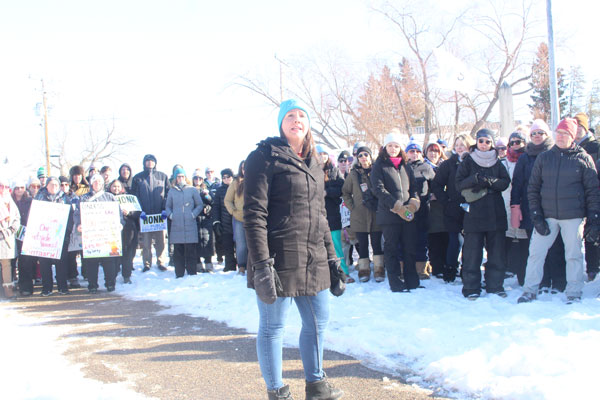Earlier this week the Saskatchewan Teachers’ Federation (STF) and the Canadian Union of Public Employees (CUPE) released a study showing high rates of workplace violence and harassment in Saskatchewan schools.
The study, Beyond the Breaking Point: Violence Against Saskatchewan’s Education Sector Workers, reveals that 84 percent of education sector workers surveyed about the 2022-23 school year experienced at least one act, attempt or threat of physical force, while 87 percent reported incidents of harassment.
Prince Albert Area Teachers’ Association (PAATA) President Jean-Marc Belliveau said that the numbers found in the survey were disturbing.
“My biggest concern is that in situations involving violence and harassment in schools is becoming normalized and part of the job for teachers,” Belliveau said. “I mean that’s not right. We should address conditions. How can we fix them? At bare minimum, we should report these incidents.”
Bellieveau said he was aware of many incidents of violence in Prince Albert classrooms, but couldn’t comment on specific cases.
Survey participants included teachers, direct student support workers like educational assistants, and indirect student support workers like custodial and clerical staff.
The study was authored by Darby Mallory, Chris Bruckert, Darcy Santor and Hanya Ismail of the University of Ottawa, and asked participants about their experiences and responses to workplace violence (i.e., acts, attempts and threats of physical force) and harassment (i.e., slurs, insults and put-downs).
Most respondents reported experiencing acts of physical force, with most of the violence being student-initiated.
According to the survey almost three-quarters of respondents experienced one attempt of physical force from a student, 85 per cent witnessed at least one student-initiated act, attempt or threat against a co-worker, 78 per cent reported one or more instance of student-initiated harassment, such as refusal to respect authority, swearing and offensive remarks and more than half (54 percent) of respondents experienced harassment by a parent.
Director of Education Neil Finch the Saskatchewan Rivers School Division board of education said there will be a report on the issue of violence in classrooms delivered at the board’s next meeting on Oct. 21.
Belliveau said that he is looking forward to seeing the numbers presented by Saskatchewan Rivers.
“I just hope that we can address this classroom violence provincially,” he said. “We are told we have to do it at a local level, so I’m interested to see how that reporting to the board will come. I’m curious to see what information (will come) out of that and how we can address these issues. That’s the biggest thing. Solving the issue is the most important thing.”
According to the STF a lack of resources and support to address student needs means violence directed toward teachers and support staff is increasingly normalized as simply being “part of the job.” In their responses, education sector workers detailed impacts to their physical and mental health and described themselves as burnt out and dissatisfied with their jobs.
For students, routinely witnessing violence is destabilizing and harms their access to instruction, capacity to learn and emotional well-being.
According to the study’s findings, only six percent of respondents indicated that actions taken to deal with the violence they experienced were “very effective.” Most institutional responses were reactive, deflective or dismissive – participants described having their concerns negated and incidents being “swept under the rug.
STF President Samantha Becotte said in a press release that proactive measures such as safety plans that can address the issue are compromised by a lack of resources. She also said providing those resources should be a priority for all elected officials responsible for schools and education.
“Teachers and educational staff are frustrated by the failure to recognize the realities faced by our schools and the lack of action by government to address violence and harassment,” she said.
In the release, she also asked the public to support the STF’s Vote for Public Education campaign which asks all parties and candidates in this fall’s provincial and school board trustee elections to make a public commitment to address classroom violence.
“We cannot afford to have committed teachers and educational staff leaving the profession because they are denied the resources they need to thrive as educators and support students,” she said.
The full report is available on the Violence and Harassment Against Educators Project website.
The Daily Herald reached out to the Prince Albert Catholic School Division for a response to the report, but did not hear back by press time.
michael.oleksyn@paherald.sk.ca


